REMEMBRANCE OF PAST THINGS
My Life in Music
by Bill Dobbins
back
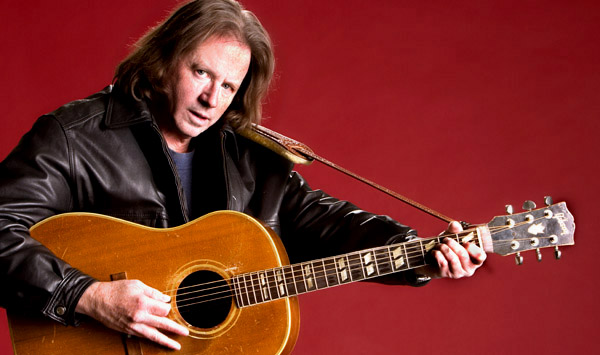 |
Bill Dobbins, 2007 |
I bought a copy of Bob Dylan's Chronicles recently and I confess I had trouble getting through
it. Not because it was uninteresting
or badly written. Far from
it. But his stories about
his early days in New York in the 1960s hit too close too home and brought
up too many memories that took time for me to process.
Dylan is just a few years older than I am. He arrived in New York City in 1961 and
got a recording contract by the end of the year. I got to New York a year later, just as Dylan's career was
taking off. But I didn't know
this, wasn't aware of who he was and had plans to go live in Europe.
I was an avid reader as a teenager and had visions of
bohemian Paris, living the artistic life on the Left Bank, painters like
Picasso and Matisse and writers like Hemingway and Henry
Miller. Even though I was a folksinger and new
this type of music was becoming popularI didn't know the "folk boom" was
about to take off in such a big, brief burst, that record contracts would
soon be handed out like candy or that playing guitar and singing traditional
songs was about to create a lot of young folk-oriented superstars.
So still in my teens I went out to live in Paris, then
later in Munich, Germany and I did have a lot of fabulous adventures and
somehow managed to avoid the pitfalls that often lead the newly-liberated
young down the path to injury, drug addiction, STDs, prison or other disasters.
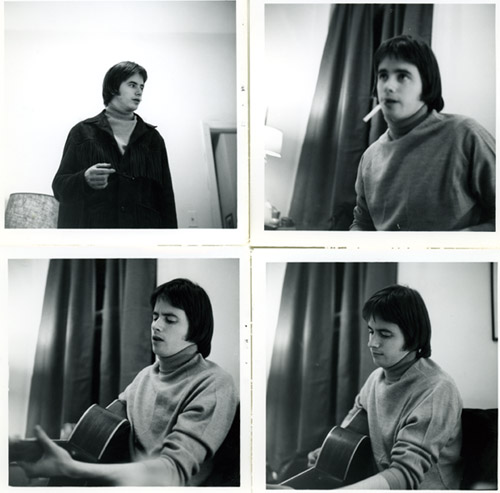 |
Bill Dobbins - College Park, Md
- 1969 |
I played music on the street in Paris for pocket change
and at diplomatic parties for food. In
Germany I found there was a whole circuit of service clubs on American
military bases that booked folk singers. So
I continued to play and sing, improved my skills but I was largely cut
off from the music scene in the United States where performers like Dylan,
Joan Baez, Tom Paxton and others were finding success.
Oddly enough, I did get a copy of Dylan's first
record – one of the relatively few sold at the beginning of his career as
I recall. I don't remember
how I came across it but I liked the record a great deal. Not as much, however, as I did the Joan
Baez records I was
able to find. Like millions
of others I was totally enthralled by her incredible voice. I listened to Baez while I was involved
in a very serious love relationship at the time and during the time that
relationship disastrously ended. Even
today it is difficult for me to separate my memories of the girl I loved
and lost and of Baez. The
two women are forever linked in my mind and emotions.
One memorable musical experience I remember was in Munich
when I attended a show that was one stop on a blues tour that featured
a number of legends including John
Lee Hooker (still one of my all-time favorites). A
young white boy who played any blues at all was still enough of a novelty
that I got to go backstage and jam with some of the musicians. Of course, it was only years later than
I realized how special this experience had been.
I got back to the United States in 1966 and went to graduate school at the University of Maryland. My
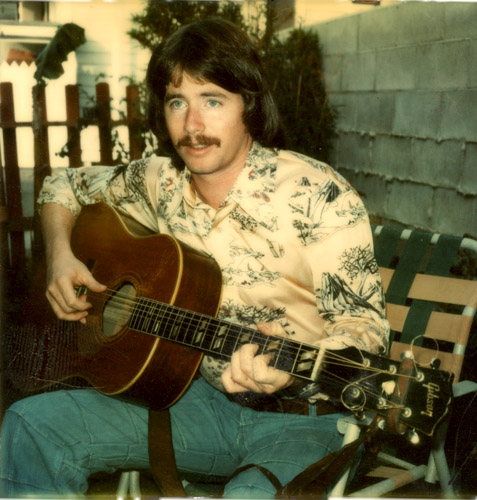 |
Bill Dobbins - Venice,
CA 1978 |
father was a military pilot and in Europe I'd been able to earn a college degree through a program available to dependants of military and diplomatic parents. The Viet Nam War was escalating and being in school was one way to avoid being drafted – a fact Dick Cheney took advantage of by obtaining five deferments. But I soon realized that even a non-specialized advanced degree such as I was seeking (in American Studies) was primarily a qualification for teaching, which I was not interested in doing.
So I packed up and went back to New York, arriving 5
years after leaving for Europe. There
I found I was able to get bookings at the coffee houses and a few college
concerts but discovered there was no "career path" happening for folksingers
in the later 1960s. I wasn't writing very much at that point and
as far as the business was concerned it had all the folksingers it needed...
...Dylan had moved on, introducing electric instruments
at the Newport
Folk Festival in 1965 – and was booed - mostly, in my
opinion, because he had the wrong backup band; Mike Bloomberg played too
hard a style for Dylan's songs, unlike The
Band (responsible for the Big Pink album) who accompanied
him later. Nonetheless he changed the music business
and created opportunities for hosts of singer-songwriters to follow.
...Baez was singing Dylan songs and topical protest material
more than traditional folk songs.
...The "purist" folk singers had been replaced
to a large degree by commercial groups like Peter,
Paul and Mary and the New
Christy Minstrels.
...Folk was being pushed aside by progressive rock and
blues-oriented bands that included everyone from The Beatles and The Rolling
Stones to Hendrix, Janis Joplin, The Grateful Dead and Buffalo
Springfield.
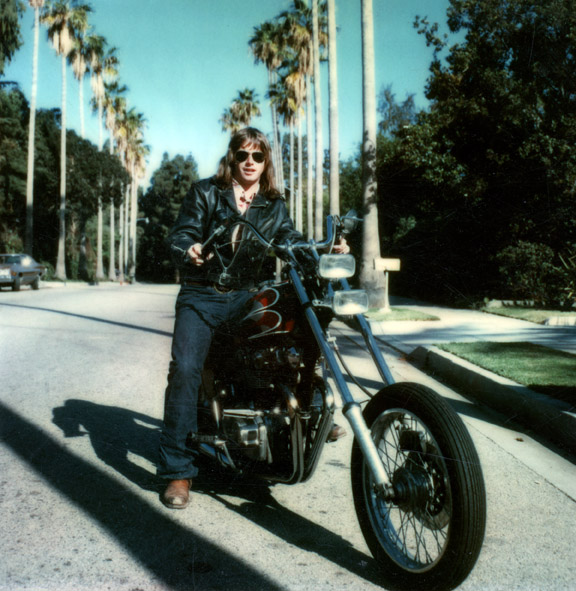 |
Bill Dobbins - Beverly
Hills, CA 1976 |
So when I got to New York I was in the same position
as I had been in Paris – I was looking for an era that was long past
and no longer existed. Fortunately,
I was able to get gigs right away – a fact that also contributes
to my deja vu experience in reading Chronicles.
Dylan played at Gerde's
Folk City and so did I (where
the master of ceremonies was Dominic
Chianese, who plays "Uncle Junior"
on the Sopranos.) He performed at the Gaslight
Cafe and the Cafe Wha? and
so did I. He
did shows at Izzy Young's Folklore Center. I was booked at the Folklore Center along with Tim Buckley,
making his NY debut. I meet
most of the people Dylan talks about knowing in that era, like Dave
Van Ronk and Fred
Neil. In his
"Woody Guthrie" days Dylan was close to Ramblin' Jack Elliott. I played with Jack (as second act and babysitter) both in
New York and on tour.
Even though there wasn't much future for non-writers
at the time I was one of the very few newcomers who actually made enough
money singing to live (barely – it's amazing what you can get by
on when you're a kid). Another
was Arlo Guthrie. Although
Arlo is a good musician and songwriter (I brought him up to Pacifica's
WBAI radio to record "Alice's Restaurant," which became the all-time promotional
money earner for the organization) his main talent was and is charm. I never met anybody who didn't like Arlo and he was able to
project this quality on stage.
Interesting side note: One night after Arlo and I performed
at the Gaslight I went back with him to his house in Howard Beach. We sat in the basement surrounded by
non-tobacco smoke fumes, he showed me how to use the I Ching and told me
stories like having Leadbelly serenade
him when he was just a baby. Along one wall were a line of old guitar
cases that had belonged to his father Woody
Guthrie. It was a memorable evening, indeed.
I got to perform alongside some very significant people. Phil Ochs was building his repertoire of
protest songs. I did several gigs with blues player John Hammond (often referred to as "Jr" but he is John P while his father the legendary producer and talent scout was John H). But soon after arriving in New York I saw the handwriting on the wall and starting writing songs.
However, I just
wrote songs that seemed good to me and that I wanted to sing myself. I wasn't trying to write hits, songs others wanted to record or even
material that sounded like the music being created by successful singer/songwriters
and groups. I
look back now and I can see why I had a number of record auditions and
found nobody interested is giving me a contract. I even auditioned for John Hammond
the elder at Columbia Records, who had discovered giants like Billie
Holiday and Bob Dylan. I
remember how disappointed I was when he showed little interest. (But his secretary was very encouraging, which I much appreciated.) When
I play the songs I wrote in the late 1960s today it people generally aren't
aware they were written that long ago. I can play a composition from the 60s,
the 70s or something more recent and unless I announce it nobody realizes
two songs might have been written 20 or 30 years apart.
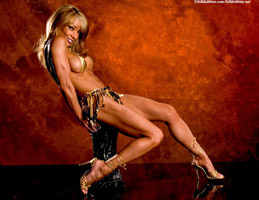 |
Apparently, I write what sound like "Bill Dobbins' Songs"
no matter when I create them. And
what I was doing in music went from being behind the curve when I first
got back to NY (because of my time in Europe) to being ahead of it, or
outside it or something else out of sync with the times. I remember a reviewer
from a New York paper writing about one performance at the Gaslight (I
opened for Hammond or Ochs or somebody) who dismissed my set with the words,
"The opening act was a singer who performed his own songs."
At one point I started to worry that my career was never
going to go anywhere. Clubs
were closing, 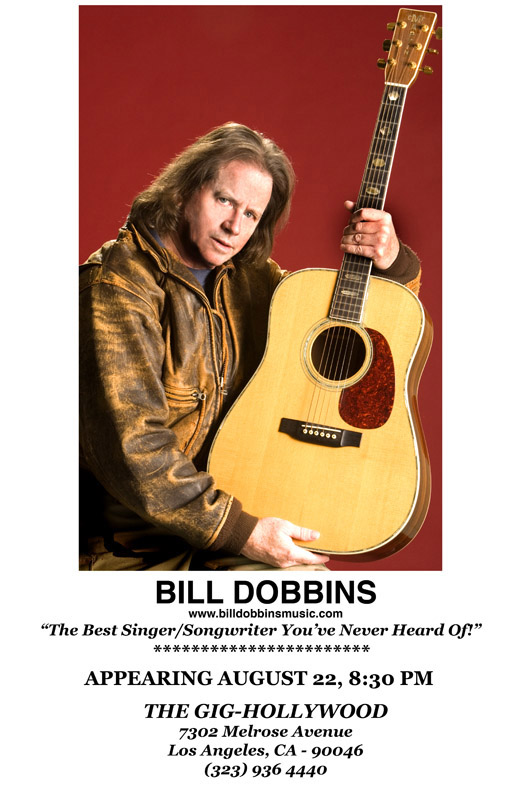 everything was going "big business" (as it is again in the
process of today) and what I was doing didn't seem to fit in. Another
thing that concerned me is that
I'm somebody who likes to do a lot of different things (as I am able to
do now) and when I was a singer-songwriter that was all I could do. So
I started looking around for a "day job." I had this vision of pumping
gas someplace at age 40 because my career never took off and I had no other
training to fall back on. That would probably never have happend given
my education and overall skill set, but it did cause me some worry.
everything was going "big business" (as it is again in the
process of today) and what I was doing didn't seem to fit in. Another
thing that concerned me is that
I'm somebody who likes to do a lot of different things (as I am able to
do now) and when I was a singer-songwriter that was all I could do. So
I started looking around for a "day job." I had this vision of pumping
gas someplace at age 40 because my career never took off and I had no other
training to fall back on. That would probably never have happend given
my education and overall skill set, but it did cause me some worry.
I'd
had some background in radio so I was able to get hired as my second job
in NY broadcasting as a director at WABC radio - back when it had a top-40
format under program director Rick
Sklar and was the number one station in the number one market
in the whole country. But this involved directing morning drive-time
radio personality
Herb Oscar
Anderson and getting to work at 6 AM, just when I would have been
going to sleep as when I was performing. I had a roommate who was still a musician
and I remember one very early morning stumbling out of bed, ready to go
to work and gong out into the living room to find him entertaining two
attractive blondes.
They were going to bed, I was going to work and my roommate was behind in his rent. That was not the kind of thing that made me feel like getting on the subway at 5:15 AM and going to WABC.
Thinking back, it is amazing how many things I got involved with that were significant or even historical which I took pretty much for granted. Singing at legendary Village coffee houses, sliding so easily into a directing job at a landmark radio station. Those were the days of D.J.s like Cousin Brucie (Bruce Morrow), still going strong today at Sirius Satelite Radio and Dan Ingram, a D.J.'s D.J. who could free associate as such a lighting pace that you'd have to play back his rap several times if you wanted catch all his references.
But my association with ABC did have it's benefits. Where previously I could walk into any club in the village
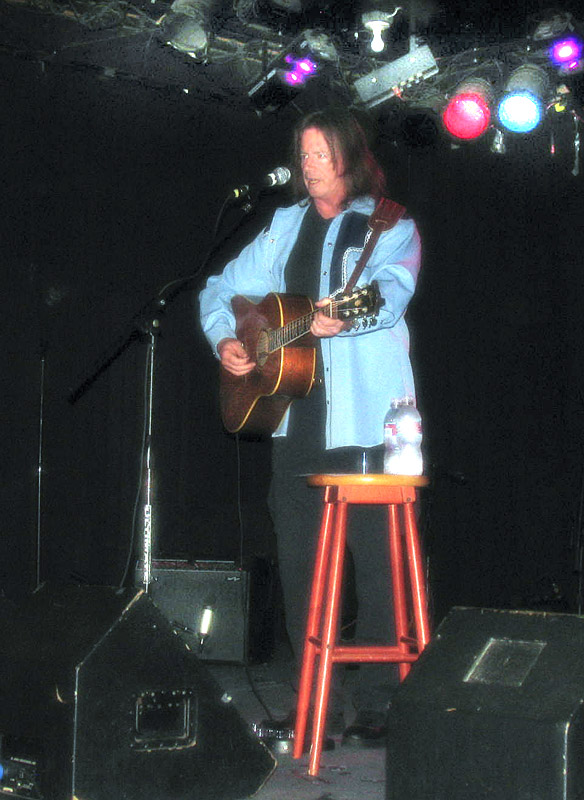 |
now I was welcome every where from nightclubs (the
predecessors of Studio 54) to Bill Graham's Fillmore
East, where I saw
everyone from The Who to The Grateful Dead and Frank Zappa. My ABC credentials also got me backstage at the Dick Cavett
show for his legendary
interview with Jimi Hendrix. Later I went to see Hendrix at Madison Square Garden where
he created such excitement I literally thought there was going to be a
riot.
Amazingly, Hendrix shared the bill with Donovan – and
it would be hard to plan a program in which the two performers differed
to any greater degree.
When WABC initiated an FM progressive format I was only
of the people they selected to help develop it. I worked with a disk jockey who was also a very successful
voice-over announcer and had a manager who also handled talent like Al
Kooper, Lou Christie and a producer named Chip Monck. Chip is the calm, soothing voice you hear throughout the movie Woodstock and
through my association with him I had all-access passes throughout the
Woodstock weekend (they kept adding more credentials so you had to stay
alert to stay current).
Woodstock was an amazing experience. I ran into lots of musicians I knew,
like Arlo Guthrie. I'm not
in the movie but you can hear my voice talking to Arlo in the backstage
pavilion. At one time I found myself standing on the scaffolding behind
the stage drinking champagne next to Grace Slick. We
had run out of water but there was plenty of champagne. Food was also scarce for many attending
so a number of us volunteered to help Wavy
Gravy (Hugh Romney, whom I knew
from a performance he did when I was at the Gaslight) and the Hog
Farm
hand out stew and other victuals.
To be continued...
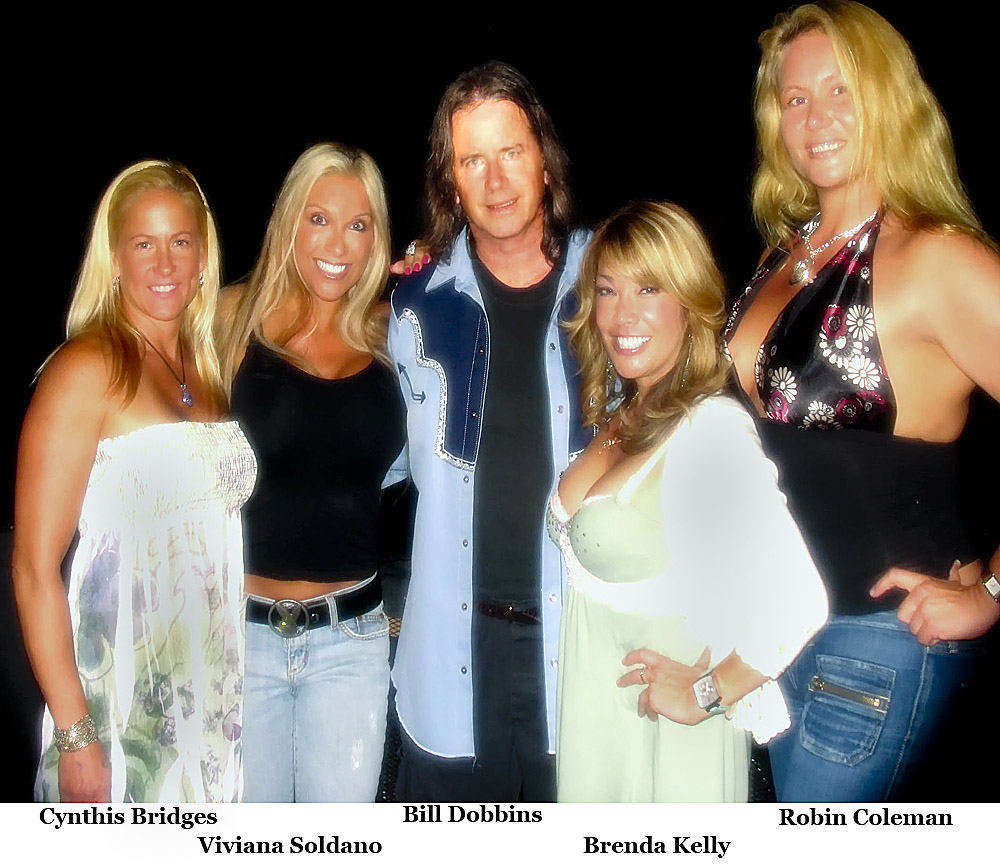 |
Bill Dobbins Photographic
Models Turn Out To Hear Him Perform at The Gig One of the benefits of being a photographer as well as a musician is that you get to meet even more attractive women. |